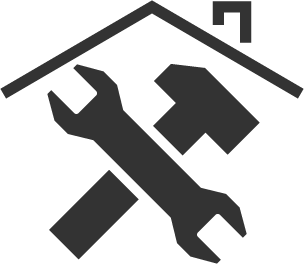No matter your residential roof type, it requires some TLC to work reliably and last for a long time. Here are some preventive maintenance tips you can follow to maximize its performance and durability.
Invest In Roof Inspections
A roof inspection is not something you should do only after noticing obvious signs of roof damage in your home. You should inspect your entire roofing system, including the attic, at least regularly and following any severe storm.
The best time to get your yearly roof inspection is during the fall season, just before the rainy season kicks in. The rain makes your roof's surface wet and slippery, creating a dangerous situation for roofing crews who will need to walk on your roof to inspect it.
The biggest advantage of scheduled roof inspections is that they help you find most problems before they exacerbate and cause extensive damage, which can be expensive to repair. Some common issues revealed during routine roof inspections include the following:
- Damaged or missing roofing shingles or tiles
- Excessive accumulation of granules in the gutters
- Deteriorated roof flashing material
- Growth of mold, moss, algae, lichen, and other microbial organisms on your roof
- Blocked or damaged gutters and downspouts
- Excessive moisture buildup in the attic
Depending on the problems found, your roof inspector will let you know what fixes are necessary to return your roof to good working order.
Make Timely Repairs
Roof inspections are only an effective preventive roof maintenance strategy when followed up with corrective action. If the issues identified during these inspections are not dealt with effectively and on time, the exercise will prove futile.
To keep your residential roof in good working condition, ensure you address any problems as soon as they're discovered.
Clean Your Roof
Regular roof cleanings are not just essential for enhancing your home's curb appeal — they help remove the accumulated dirt and grime that can cause damage if left to sit on your roof's surface over time.
Clean roofs also discourage the growth of mold, mildew, moss, lichen, and other microbiological organisms that ruin the appearance of your roof and cause it to deteriorate faster than expected.
When cleaning your roof, don't forget its drainage system. Cleaning the gutters and downspouts that direct rainwater away from your house's foundation is vital for avoiding flood damage and the issues that may arise after fixing the damage.
Your roof is a vital part of your residential property. It not only shields the entire structure from harsh weather elements but also influences the overall look and feel of the property. If you need professional help with taking proper care of it, don't hesitate to contact a residential roofer near you. For more information on residential roofing, contact a company near you.

 The strong roof is one that has been carefully selected for your home, according to the local climate and your home's structure. The strong roof is one that you've taken the time to maintain, season after season. It's a roof that is protected by good insulation and a good warranty. Do you have a strong roof? As you check out the articles on this website, you'll come to a better understanding of what it means to have a strong roof and what you can do to keep your roof strong. We hope you enjoy reading these articles we've collected for readers like you.
The strong roof is one that has been carefully selected for your home, according to the local climate and your home's structure. The strong roof is one that you've taken the time to maintain, season after season. It's a roof that is protected by good insulation and a good warranty. Do you have a strong roof? As you check out the articles on this website, you'll come to a better understanding of what it means to have a strong roof and what you can do to keep your roof strong. We hope you enjoy reading these articles we've collected for readers like you.